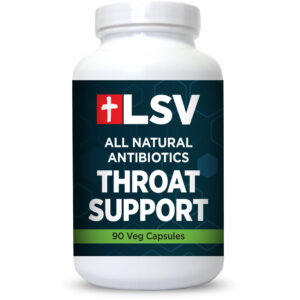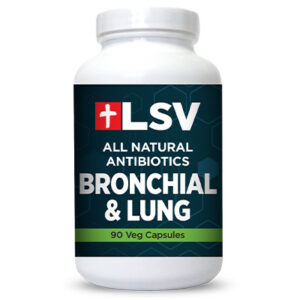Our Company
LSV
SINCE 1992
Founded in 1992, in Winter Park, Florida – LSV Vitamins has been the leader in All Natural Antibiotic supplement sales for over 30 years in the United States.

Reishi Mushrooms: Amazing Potential Anti-inflammatory Properties
Reishi mushrooms (Ganoderma lucidum) have been a mainstay in traditional Asian medicine for centuries, revered for their ability to promote overall health and well-being. Modern science is now exploring the potential benefits of these fascinating fungi, with a particular focus on their anti-inflammatory properties. While more research is needed, initial findings suggest reishi mushrooms may offer a natural approach to managing inflammation.
Modulating the Inflammatory Response
Studies suggest that reishi mushroom extracts may help reduce inflammation by influencing the immune system’s response. These extracts appear to modulate the activity of immune cells that contribute to the inflammatory process [1]. This modulation may help lessen the body’s inflammatory response, potentially offering relief for various inflammatory conditions.
Targeting Inflammation at the Cellular Level
Research also indicates that reishi mushrooms may target inflammatory pathways within cells. Certain compounds found in reishi, like triterpenoids and polysaccharides, may act to downregulate the production of inflammatory molecules [2]. By reducing these molecules, reishi mushrooms may help create a less inflammatory environment within the body.
Early Signs of Promise for Inflammatory Conditions
Although research is still in its early stages, some studies have shown promise for reishi mushrooms in managing specific inflammatory conditions:
Important Considerations and the Need for More Research
While the initial research on the anti-inflammatory effects of reishi mushrooms is encouraging, there are important factors to consider:
Reishi Mushrooms: A Complementary Approach, Not a Replacement
Based on current research, reishi mushrooms show promise as a natural approach to inflammation. However, they should not be seen as a replacement for medication prescribed by a doctor.
Exploring Reishi Mushrooms Responsibly
If you’re considering using reishi mushrooms for inflammation, consulting your doctor is essential. They can assess your individual needs and advise you on whether reishi mushrooms are a suitable option and recommend appropriate dosages. Reishi mushrooms come in various forms, so discussing the best option for you is crucial.
The Future of Reishi Mushrooms in Inflammation Management
As research on reishi mushrooms progresses, we may gain a deeper understanding of their potential role in managing inflammation. Future studies may shed light on optimal dosages, specific applications for different conditions, and the exact mechanisms by which reishi exerts its anti-inflammatory effects.
Natural Antibiotic line: See Below:
LS Vitamins – Since 1992
See All of our effective All Natural Products Here
All Natural Antibiotics Cold & Flu
All Natural Antibiotics Sinus Support
All Natural Antibiotics Teen Support
All Natural Antibiotics Tooth & Gum
All Natural Antibiotics Bronchial & Lung Support
All Natural Antibiotics Throat Support
Below are a number of statistics that help describe how antibiotics are currently being prescribed in outpatient settings in the United States and how these practices are contributing to the larger issue of antimicrobial resistance.
The possibility of antibiotic side effects can be frightening, but it is important to remember that their proper use has saved countless lives. Those using antibiotics should report any possible negative reactions to their doctor immediately. In some cases, doctors will have their patients continue using a specific antibiotic if the side effects are mild; in others, the doctor will switch the patient to another drug.
For Over 30 Years, we have 3rd Party Tested each and every nutrient that go into all of our products: Purity & Effectiveness is how are product continually works for Tens of Thousands of our Customers.
By no means are we at LSV Vitamins saying do not take what your doctor prescribes, we are just saying that we have an alternative for those who cannot take Antibiotics, afraid one of the many side effects, or simply want to try an all-natural alternative. We have a large number of people (over 100,000) who take and have taken this at the first sign of a problem, and it works well. As always, consult your doctor.
Studies Referenced:
*Disclaimer: None of the above statements have been evaluated by the FDA. These products are not intended to diagnose, treat, cure or prevent any disease. As always, consult your physician before taking any supplements. LSV. Individual results may vary.
 Throat Support - Natures Antibiotics
Throat Support - Natures Antibiotics
 Bronchial & Lung Support - Natures Antibiotics
Bronchial & Lung Support - Natures Antibiotics
LSV
SINCE 1992
Founded in 1992, in Winter Park, Florida – LSV Vitamins has been the leader in All Natural Antibiotic supplement sales for over 30 years in the United States.